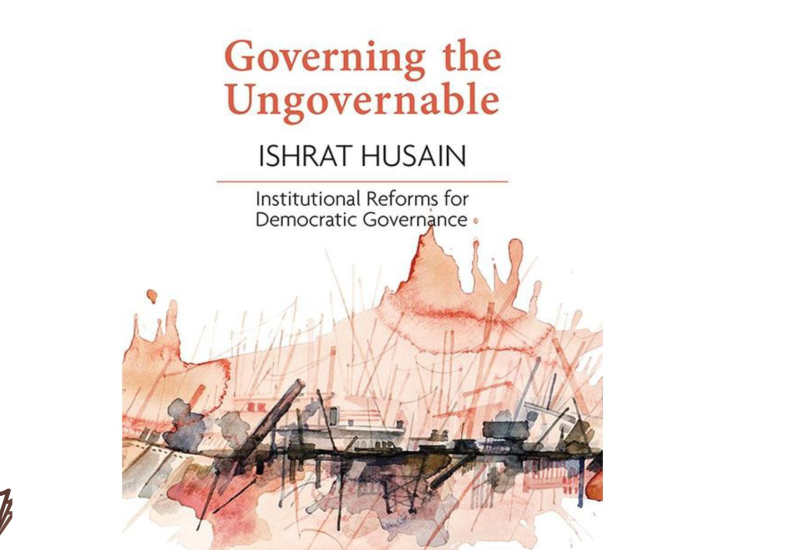Is the red tape undermining higher education in Pakistan?
Universities are complex organizational structures. These are expanding at a brisk pace, too. In the global academic marketplace, academia is increasingly becoming a business-like concern. Management of its official business, though, requires some sort of bureaucratic arrangement, nevertheless, excessive managerialism is a real bane for the seats of higher learning and research.
Many academics feel seriously concerned that this increased managerialism is a symptom of a new bureaucratic control being exerted over research, labs, finances, HR, statutory affairs and procurement. For instance, the rapid expansion requires additional faculty, researchers and technical staff to be hired. More classrooms need to be built. More labs to be established. More instruments, equipment, PCs and furniture ought to be purchased. All these need to be managed efficiently and cost-effectively. But this is not happening on the ground in the case of HEIs in Pakistan.
This blog post makes an effort to unearth multiple layers of bureaucratic hassles that impede growth of the emerging universities and frustrates academic leadership. Analyses of its root causes and solution deserve to be looked into methodically and separately.
Research
The bureaucratized research has been briefly discussed in the “challenges confronted by the Ph.D. scholars”. Nevertheless, red tape haunts, all most all, research-related business in the academia, heralding deleterious consequences for knowledge management, creativity and innovations. The irksome processes, procedural barriers and inadvertent delays, at every stage of the inquiry related affairs not only vitiate ingenuity but also hamper the momentum of research culture to thrive in the universities in Pakistan.
To begin with, the process of approval of the research proposal or synopsis is very cumbersome. Various people, multiple committees, and several academic units are involved in it. Similarly, the process of approval of the dissertation is even more punishing. It consists of various stages of evaluation, both internal as well as external. Similarly, research-related projects experience reams of bureaucracy.
Identification of funding agency, submission of a research proposal, its formal approval, releases of funds, execution of the project, completion of the project, submission of the report, realization of funds, justification and final release of budget are few of the major steps, having robust procedural barriers hindering research-related interventions in the universities in Pakistan.
Financial Management
For the sound financial health of any university, an effective, viable and transparent financial management system is required. But, this does not permit, in any way, measures which alienate the academics from teaching and research.
As per statutory requirement, approval of the budget estimates and revised budget estimates need final approval of the Senate, for which recommendations of the Finance & Planning Committee and Syndicate is a must. At this stage, internal as well as external bureaucracies used to play a part simultaneously, culminating in inadvertent delay in the approval of the budget, most of the times. Hardly, one or two universities of the total number, manage to get it approved with the stipulated period of time.
Very recently, approval of an additional allowance for some foreign PhD faculty proposed by a public sector university, witnessed extensive debate of the two meetings of the principal governing body (i.e, Senate), two meetings of the Finance and Planning Committee and one meeting of the executive body that is Syndicate, consuming almost a year but even then it was referred to the provincial government for approval.
Similarly, approval of the routine bills is experiencing the worst kind of delay among all the financial business of the universities. Bills include all types of claims by the suppliers and vendors for providing equipment, goods and services to the universities follow the exhaustive and lengthy procedures. As per routine practice, the file for such claims making rounds from office to office and desk to desk (finance, audit, procurement, store and technical & inspection committee) with multiple and repeated audit observations, ultimately taking months before final clearance. This inadvertent delay is sometimes exacerbated by the physical disappearance/missing of the file. One wonders, if the academic staff used to chase their petty bills in the finance department of the university, how come, they will focus on the teaching and research.
Human Resource Management
The human resource department is supposed to strategically manage and facilitate human resource to realize vision and mission of the university, nevertheless, its mismanagement pushes away academics from research activities and academic work. In an era, where new developments are happening in every walk of professional life, HR is managed, in the archaic, establishment style of personnel management. The prevalent HR system is bureaucratic, unresponsive and inefficient. For instance, the creation of any vacancy is routed through several committees and bodies and takes several months for its sanctioning.
Filling of a sanctioned vacancy is even more strenuous than its creation, as it undertaken by a couple of committees, selection board and finally the executive body by the university. Once the post is advertised, short listing of the applications takes roughly a month or two which is followed by the screening test and demonstration which is again the matter of months. For the interview, the candidates are required to appear before the Selection board and for the final approval, the meeting of the syndicate is awaited which can takes months. Hence, the whole process takes at least six months and this can even be extended beyond a year, at times. The entire process is tiresome, hectic and time-consuming.
In one case, where I, was a candidate for an advertised position in a public sector university, it took more than a year, for just the shortlisting task to be completed. In another similar case, the post for which I applied was re-advertised thrice as some very important information about the position was missing.
In another recent example, for some advertised positions, screening test could not be conducted even after the lapse of one year. In another similar case, the recommendations of the selection board could not be placed before the syndicate even after the lapse of three months time. At times, the official documentation and compilation of proceedings of various meetings take an overly long time. With few obvious exceptions, these dillydallying practices, predominately, prevail invariably in all most all universities in Pakistan.
Statutory affairs
Extremely complicated statutes, heavy-handed rules and cumbersome regulations are the hallmarks of the statutory business of the universities. Efforts were made, to revise the prevailing statutes and by-laws of the universities with a view to bring uniformity and standardization in the official business of the universities during the first innings of the incumbent government in the province.
A committee was constituted for the purpose. The more than one and a half year of deliberations, brainstorming and a series of meetings culminated in a draft of the statutes considered as a model for all the public sector universities. However, the version of statutes which was finally approved for each university was neither model nor standard nor uniform, by any means. Now, even minor changes require at least six months of time and approval of the principal governing body ( that is senate) of the university.
Hence, the bureaucratic norms widely prevail and the academic leaders tend to struggle while setting the strategic direction of the higher education institutes. Meanwhile, the government has constituted another committee comprising, predominantly, of the officers from provincial bureaucracy to revisit the statutes, over again. This vicious cycle seems to have entrapped the universities with deleterious outcomes.
Procurement
Besides, lengthy process and exhaustive file work, the procumbent system in any public sector university is subjected to unprecedented delays and serious bureaucratic red tape. From demand for the procurement of any item (for instance, lab item, chemical or equipment) to the final supply of the item, the whole process involves numerous formalities. Since the process of procurement is so robust, and the final payment of bill takes so long that the suppliers often found cursing the administration of the universities for its flunked system of procurement.
Conclusion
In a nutshell, the higher education is overwhelmed by increasingly cumbersome procedures, excessive regulations and rigid conformity to formal rules, ultimately hindering smooth functioning of the academic business, research activities and decision making. This bureaucratized mindset prevailing in the higher education sector while apparently promoting excellence has been systematically undermining it, in the long run.
Constitution of a reform committee is direly required at the HEC level to investigate various subsystems prevailing in the public sector universities with a view to developing a mechanism, curtailing crushing load of administrative work, red tape and unnecessary file work realizing the aspiration of first-class teaching and world-class research universities in the country.


















